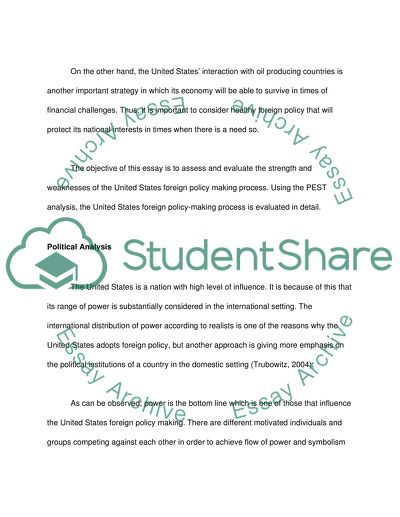Cite this document
(The United States and its Foreign Policy-Making Process Essay Example | Topics and Well Written Essays - 2500 words, n.d.)
The United States and its Foreign Policy-Making Process Essay Example | Topics and Well Written Essays - 2500 words. https://studentshare.org/environmental-studies/1412472-the-united-states-and-its-foreign-policy-making-process
The United States and its Foreign Policy-Making Process Essay Example | Topics and Well Written Essays - 2500 words. https://studentshare.org/environmental-studies/1412472-the-united-states-and-its-foreign-policy-making-process
(The United States and Its Foreign Policy-Making Process Essay Example | Topics and Well Written Essays - 2500 Words)
The United States and Its Foreign Policy-Making Process Essay Example | Topics and Well Written Essays - 2500 Words. https://studentshare.org/environmental-studies/1412472-the-united-states-and-its-foreign-policy-making-process.
The United States and Its Foreign Policy-Making Process Essay Example | Topics and Well Written Essays - 2500 Words. https://studentshare.org/environmental-studies/1412472-the-united-states-and-its-foreign-policy-making-process.
“The United States and Its Foreign Policy-Making Process Essay Example | Topics and Well Written Essays - 2500 Words”. https://studentshare.org/environmental-studies/1412472-the-united-states-and-its-foreign-policy-making-process.


